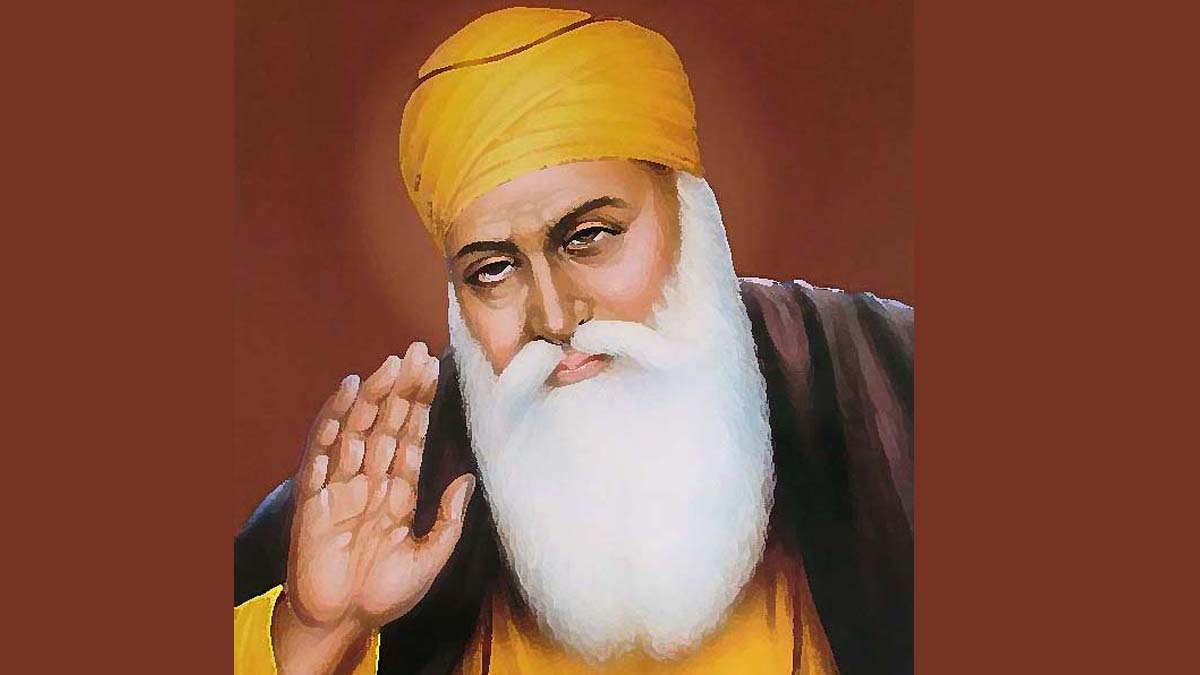On this Kartik Purnima, let us honour Guru Nanak Dev Ji by breaking the chains of caste, religion, and inequality
Born on Kartik Purnima, Guru Nanak Dev Ji devoted his life to unity, truth, and equality. Over five centuries later, caste and communal divides persist. On this Prakash Parv, true tribute lies in walking his path—rejecting discrimination and embracing humanity as one....
Guru Nanak Dev Ji was born on this day to establish harmony among all human beings worldwide. Humble greetings on this auspicious Kartik Purnima, 5th November, celebrated as Guru Nanak Dev Ji’s birthday, also known as Prakash Parv. Over five and a half centuries ago, Guru Nanak Dev Ji spoke against caste and religious conflicts. During his 70-year life, he travelled far—from Mecca and Medina to Varanasi, Bengal, Assam, and across India—to awaken truth and human unity. Yet today, even after 550 years, divisions persist. T
A true tribute to him would be to follow his path by acting against communalism, casteism, and all forms of inequality.
Despite dedicating his whole life to fighting caste and communal discrimination, separate gurdwaras still exist for Jats, Khatris, and Dalits. Sadly, even those who converted to Islam or Christianity to escape caste oppression face segregation—Dalit churches exist, and within Muslims, divisions like Ashraf and Ajlaf continue.
Activist Ali Anwar from Bihar has been working on this issue for over 25 years. A Marathi saying says, “Caste never leaves.” Great reformers like Mahavir, Buddha, Guru Nanak, Jyotiba Phule, and Dr B. R. Ambedkar devoted their lives to ending caste, but today, parliamentary politics revolves entirely around religion and caste, like a bull circling endlessly in an oil press.
On this Prakash Parv, if we truly respect Guru Nanak Dev Ji, we must break these chains and move forward.
Guru Nanak Dev Ji said that the hierarchical caste system of Hinduism is a symptom of moral decay. Ascetics were divided into ten orders, yogis into twelve, Jains into sects like Digambar and Shwetambar, and even scholars quarrelled over interpretations of sacred texts. Numerous sects emerged, each clashing with others. Some chased magic, some immortality, and many sank into corruption. Truth fragmented into countless pieces. Caught in illusion, people lost sincerity—urging followers of every faith to walk the path of truth. Five centuries later, Mahatma Gandhi echoed this vision with his prayer “Raghupati Raghav Raja Ram, Ishwar Allah Tero Naam.”On being asked who a true Muslim is, Guru Nanak replied, “To call oneself a true Muslim is most difficult.”
A true Muslim is one who destroys inner impurity, obeys God humbly, and transcends birth and death. He said, “Build the mosque of love, make faith your prayer mat, and honesty your Qur’an. Let compassion be your circumcision, and good deeds your fasting.”
True prayer is not words but actions: truthfulness, honest labour, service to all beings, sincerity, and devotion to God. One who embodies these becomes truly pure.
For ordinary people, Hinduism and Islam appear separate and irreconcilable. But Guru Nanak taught that if hatred is renounced, both paths lead to the same goal of spiritual liberation: “Both paths are one for the one who knows this.” Only those who see unity attain completeness.




